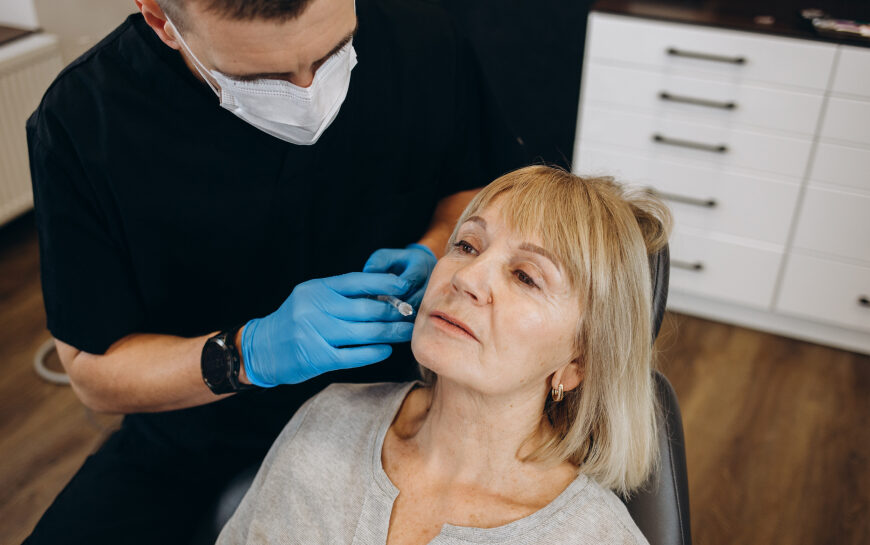Gardening is a great hobby and form of exercise that nurtures the body and mind. It is suitable for people of all ages and can be enjoyed throughout the year. So, if you enjoy being outdoors and feeling the cool and fresh air on your skin, then gardening could be the best pastime for you. Follow these gardening tips to ensure you stay safe while enjoying your time in the garden.
Avoid over-exposure to heat and sunlight
When you garden, you are incredibly close to the environment and its elements. While certain elements, such as the breeze and the singing sounds of birds or crickets are soothing to the senses, others, like heat and sunlight, can be less so. Therefore, you need to take adequate precautions to protect yourself against these two elements.
Over-exposure to heat and sunlight can cause problems such as heat stroke or heat exhaustion. The symptoms of these conditions include hot and dry skin, confusion, profuse sweating, slurred speech, high body temperature, possible seizures, headaches, dizziness, nausea, fatigue, irritability, increased thirst, and decreased urine output.
To prevent dehydration and sunstroke, it is advisable to garden during the cooler and more pleasant times of the day, such as early morning or evening. You can also use the shade from trees to your advantage. More importantly, remember to drink plenty of water to keep yourself hydrated and take frequent breaks to rest.
Use a sunscreen (with an SPF of more than 30) to protect your skin against the sun’s rays. This is an important gardening tip. Furthermore, you can use durable gardening gloves to protect your hands and skin against prickly branches, roots, brambles, and thorns.
Apply proper form for gardening
You need to maintain proper form while gardening to help keep your posture and overall health optimized. To prevent ligament strain, gardeners can use a kneeler stool when kneeling. It is important to find the right ergonomics during the process. In case you squat a lot while gardening, keep your heels pressed to the ground. And if you prefer kneeling, try putting just one knee on the ground.
Similarly, you need to use tools that are easy and ergonomic to use. Keep in mind that one person’s idea of ergonomics may not match another individual’s opinion regarding the same. So, to have a steady reference point, refer to the Arthritis Foundation’s exhaustive list of “ease-of-use” gardening tools.
Moreover, several hours spent gardening can leave your wrists vulnerable to tendinitis due to the pruning involved in the process. You can use pruners with long, comfortable handles to have perfect ergonomics and comfort while pruning. These devices improve your form while you prune during a gardening session.
Keeping your posture and form intact is a major part of getting gardening right as an exercise form.
Develop raised beds
Gardening involves a lot of kneeling and standing due to the extensive soil-related work involved in the process. This can cause discomfort in your knees, calves, or ankles, especially if you have bone or joint pain. One of the best gardening tips for beginners and seniors is to use raised beds to avoid joint pain. They can help alleviate the strain on your body caused by frequent movements like sowing seeds, watering plants, and using fertilizers.
As the name implies, raised gardens involve having elevated boxes that are relatively small in size and filled with soil to support plants without using the soil beneath them. This makes gardening easy as you do not have to crouch and rise too much while gardening. Raised beds take some time to be set in place, but once done, they make the task of gardening easier. Moreover, raised bed gardens also look unique and stunning.
Try large container gardening
Apart from raised bed gardening, another useful solution for you is container gardening for seniors. These containers contain soil and plants and are more easily moved than actual raised beds. This makes shifting plants around easier for seniors. You can use lightweight containers made out of plastic to make gardening easier for you. Container gardening is helpful when you need to move your plants indoors during the winter and then outdoors again when the rains arrive.
Container gardening offers both convenience and beauty. Its ease and esthetics make pursuing it one of the best gardening techniques available today.
Reduce lawn size
One of the most common gardening tips for beginners and seniors is to start on a small piece of land. So, reducing your lawn can be a good starting point in your gardening adventure. After all, maintaining a grass lawn can get tiresome after a while, especially if it covers a huge space.
Reduce the amount of grass you need to maintain to make gardening less cumbersome. This will enable you to take constant care of your lawn and not get too exhausted by it every day. While reducing your lawn, you can replace your high-maintenance grass with a kind of ground cover. Some of the low-maintenance groundcovers include woodier covers like juniper, low-growing herbs like wooly thyme, and herbaceous covers like creeping phlox.
By reducing the size of your lawn, you can pay more attention to enhancing the esthetic appeal of your garden. For instance, one creative way to do this is by laying decorative stones or gravel in the garden to create a beautiful backdrop.
Use long-handled garden tools
Another safety and convenience-based gardening tip is using long-handled gardening tools. As the name implies, these kinds of tools come with long handles so that you do not have to kneel and bend a lot. This not only simplifies and speeds up gardening but also eliminates the prospect of shoddily-done gardening due to the physical strain that comes with it. Some of the tools to achieve these goals, as per the Arthritis Foundation, are long-handled garden hoses and lay-flat couplers that are both easy and safe to use.
Additionally, if you are experiencing rapidly deteriorating vision, painting the handles of your gardening tools can be of great help. In many cases, seniors find it hard to locate gardening tools because of this issue. Painting the handles with bright colors like pink, fluorescent green, or yellow, will help distinguish these tools from all the greenery around them.
Do some stretching before gardening
Gardening is a form of exercise, so it is important to do some stretching and warm-up exercises before a gardening session. Stretching before gardening reduces the possibility of joint stress and cramps. Warm-up exercises help to loosen up possibly stiffened muscles and joints and make them more flexible and resilient.
Limbering up before a long day of gardening helps reduce the possibility of getting injured during your gardening session. The warm-up routine does not have to be overly complicated or elaborate. Just walking for about 20 minutes or skipping for a while can be good enough.
Try vertical gardening
Normally, people tend to grow a garden horizontally, which translates into plants being spread across a lawn in horizontal rows on the ground. Vertical gardening, on the other hand, is a unique way of growing plants which involves the plants being vertically suspended and growing using hydroponics, a technique in which plants grow using a water-based nutrient solution instead of soil.
Vertical gardening is a great option for those who want to garden but may have physical limitations. It involves plants growing on poles and trellises, which makes it easier to tend to them. Plus, it eliminates the need to walk a lot across your lawn, which can be difficult for those with mobility issues. You can easily purchase wall-mounted plant pouches and self-watering planters or make them yourself. Beans, cucumbers, tomatoes, and squash are all great options for vertical gardening. Overall, it’s a convenient and accessible way to enjoy gardening.
Select gratifying plants to grow
There are not many sights as heartwarming as seeing your plants grow organically and in a healthy manner. Some people develop a strong attachment to their garden plans, sometimes even likening them to their own children. If you want to experience this euphoria, you can choose plants that grow steadily, are low on maintenance, and, above all, are forgiving in nature.
There are many such plants that do not need much attention to grow properly, including indoor plants like ivy, snake, and succulents, and herbs like thyme, rosemary, and basil. Apart from these, plants like tomatoes, jalapenos, and zucchini can also be characterized as “easy and gratifying” plants to grow.
Take proper precautions before gardening
To ensure your safety, it is always better to avoid gardening alone and choose to garden during the safe hours of the day, which are before 10 AM or after 4 PM. This will also help you avoid the harmful effects of the sun during its peak hours.
Some of the protective gear to wear while gardening includes a hat, a long-sleeve shirt, sunglasses, and pants. The shirt and pants can also protect you against disease-carrying ticks. While these points may seem repetitive as they appear in multiple places in this piece, your safety is essential, and therefore they are certainly worth reiterating.
As gardening is a physically taxing activity, consult your doctor regarding any kind of health changes you have experienced recently. The healthcare professional can help you understand your physical limits before you start gardening. This will help you understand how to not over-exert physically and take adequate precautions while gardening.
Also, always keep a mobile phone with you while tending to your garden. This way, you can easily reach out for assistance in case of any unforeseen circumstances.
Always have someone around
This may feel like another safety-based gardening tip, but having someone around makes gardening more fun for you while ensuring your safety. Any task becomes a million times easier and more enjoyable when it is done as a group activity. What’s more, collectively doing a rewarding activity like gardening can be hugely helpful for your physical as well as mental health. Therefore, you must reach out to an acquaintance, a family member, or a friend to turn your gardening session into a safe and fulfilling activity for all involved.
Use medical alert devices while gardening
Medical alert devices help you to stay safe by monitoring your health continuously. For instance, a tool known as a medical alert pendant can monitor your health stats. It is an ideal tool to save you from possible falls and injuries and also inform the appropriate medical authorities in case you experience a chronic health issue while gardening.
Medical alert systems are useful allies when you are performing gardening-related tasks on your own. These devices and other communication accessories help you safeguard yourself against risks like uneven soil and slippery surfaces, roots popping up in the garden, or handling plants with thorns.
These ideas represent just the tip of the iceberg when it comes to safe and fun gardening options for seniors. Gardening is a fantastic way to improve your physical fitness and increase your flexibility and strength. Additionally, it has been shown to have therapeutic benefits for individuals with Alzheimer’s disease. Engaging in this activity can be incredibly advantageous for your overall well-being. By implementing our suggested ideas, you can make your gardening experience both convenient and deeply fulfilling every time you set foot on your lawn.







There are no comments yet